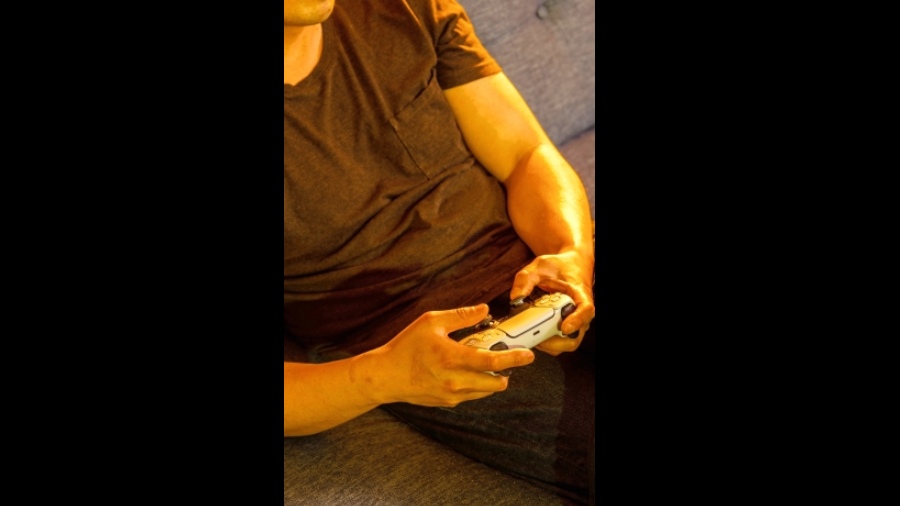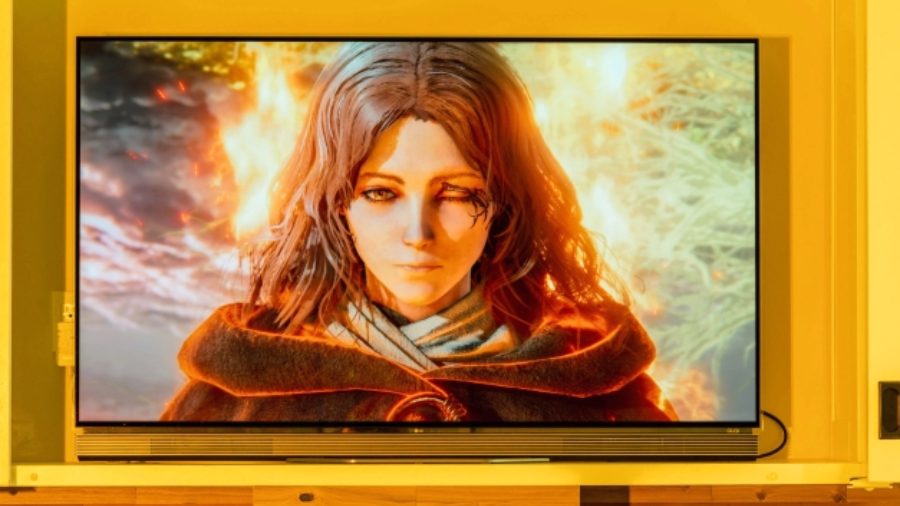I n the past two years, the pandemic has brought us many works of art that have tried to definitively capture humanity’s struggle. There was that movie with Leonardo DiCaprio turning pink as he shouts at the top of his lungs for people to look up at the comet hurtling toward Earth. It was so on the nose that it provoked little thought: yes, we are divided, likely doomed. What of it?
No medium has come as close to perfectly encapsulating our situation as video games. In the beginning, when many of us were in lockdown and baking mediocre sourdough, we played Animal Crossing, finding comfort in simple tasks like fishing and gardening while stranded on an island. This year, we are playing Elden Ring, a ruthlessly difficult game that gets only harder the more you play it.
Elden Ring has a story that has something to do with a ring, but more important is its design: it’s an open-world game, meaning you can do whatever, whenever you want. Players will ride a horse through a poison swamp, sprint across molten lava and traverse a crumbling bridge surrounded by tornadoes, fighting or evading enemies along the way.
No matter what you choose to do, you’ll probably die again and again trying to do it, sometimes for hours. Even the most experienced gamers will die dozens of times in a dungeon before reaching the boss — the main villain at the end of a game level.
None of this makes Elden Ring sound like a crowd pleaser, but the video game — a collaboration between creative director Hidetaka Miyazaki and Game of Thrones author George R.R. Martin — is on track to become the bestseller of the year, with 12 million copies sold within a month of its release in February.

At some point in the game, you face a dragon. You have a choice to fight or flee. At first, you’ll probably retreat, and eventually, after acquiring enough strength and the proper weapon or magic spell, you’ll return to slay the dastardly fire-breather and relish your victory.
Moments later, though, you’ll be ambushed and killed by something nasty, like a hawk that’s gripping razor blades in its talons.
In Year 3 of the pandemic, as vaccination rates have risen and hospitalisation cases have dipped in some areas, offices, schools and restaurants have reopened. To many, the dragon has been slain. Yet in other parts of the world, a new variant of the coronavirus is driving another wave.
As some of us let our guard down to have some semblance of a normal life, we are bracing ourselves for that stupid bird around the corner that still might kill us. Our hard-learned lesson of the pandemic — to expect disappointment and more struggle — has trained us well for Elden Ring.
To defeat a boss, you can carefully study its moves and plan an attack, or you can “cheese” it with a cheap trick that requires no skill and ensures victory. Either way, a win is a win.
Players mostly suffer through Elden Ring alone, but there are parts so difficult, like an ultratough boss fight, that people will need to get help from others online. To accommodate this, the game erects small statues in challenging areas that act as summoning posts to bring in a cooperator.
Miyazaki has said in interviews that he was inspired by a personal experience many years ago when he was driving up a snow-covered hill. A car in front of him got stuck, and so did he and one behind him, but then another car in the back drove forward and started pushing the third car. Similar assistance eventually got everyone over the hill.
“We come into each other’s lives for a minute... and still make an impact,” said Keza MacDonald, the video games editor for The Guardian and author of You Died, a book about Miyazaki’s games. “It’s not really one player versus the game. It’s the entire community of players versus the game.”
By the time I had finished Elden Ring, with some help from friends and strangers online over about five weeks, I didn’t come out of the game feeling more anxious or pessimistic. I ended up making plans with friends I hadn’t seen in two years.
NYTNS











